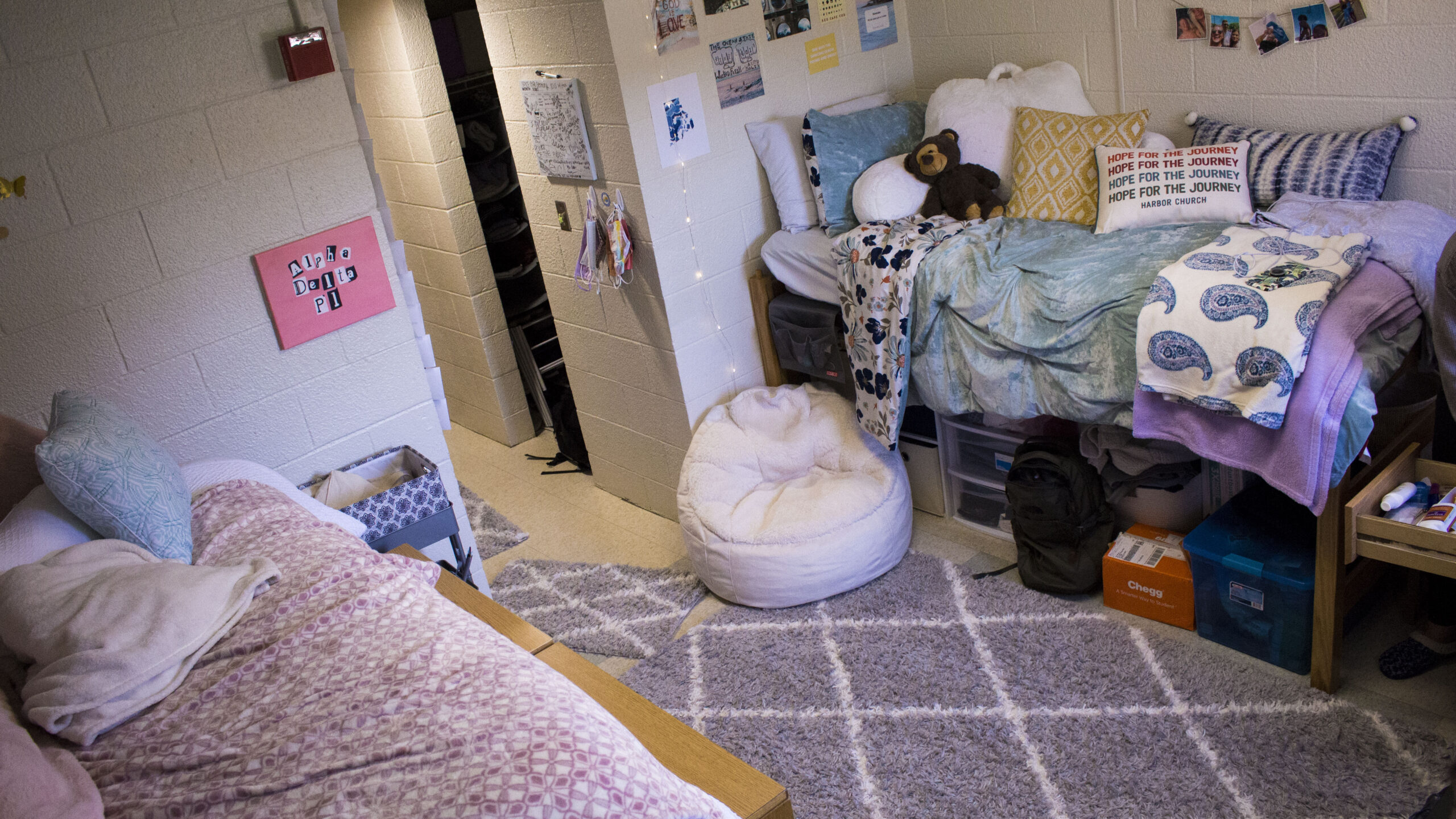Among the things that will never be the same because of COVID-19 will be the use of triple dorm rooms at URI. Photo by James McIntosh.
ith the 2021-22 academic year rapidly approaching, the University of Rhode Island has unveiled its preliminary housing plans, announcing a major change from usual housing protocols: freshman double dorm rooms will no longer be used as triples.
In a newsletter sent out to students, URI’s Housing and Residential Life (HRL) announced, among other things, that outside of the 13 rooms that are built with the intent to house three students, all others will remain doubles. These triples are located in Butterfield Hall and Browning Hall.
This year, many rooms in freshman residence halls have been used as singles due to concerns over shared bathroom spaces during COVID-19, whereas they have been used as doubles and triples in the past. However, this will not persist into next semester.
“Given that we know that COVID is more airborne than surface driven transmission, health officials have stated that yes, we can safely occupy all of those double-sized rooms as doubles, even though it will increase use of the bathrooms,” Frankie Minor, director of HRL, said.
This means that dorm rooms in residence halls, such as Barlow Hall and Hillside Hall, will no longer be used to house three students at a time, due to fears of overcrowding during COVID-19. Due to this, there will be 900 spots less in housing than a typical year in the past, according to Minor.
He added that HRL has no immediate plans to return to the housing arrangements from prior years in the immediate future, although they may reconsider reinstating these for the 2022-2023 academic year.
The new housing regulations have been difficult for this year’s freshmen, according to Minor, as students are not able to access residence halls other than the ones they live in and have been restricted in their social interactions.
Minor said that due to current COVID-19 restrictions, it has become much harder for students to build connections with the school and other students. However, some restrictions have been relaxed as the academic year has progressed, such as opening lounges in residence halls allowing students time to socialize with each other.
Dave Lavallee, assistant director of URI Communications, said that the University has done research on which students would benefit the most from living on campus and have based its selection order based on this data.
“I think [the order in which students are placed for housing is] important, we have communicated with students already, so it won’t be a surprise,” Lavallee said
Both Lavallee and Minor noted that incoming freshmen will receive first priority on housing, as 95 percent of freshmen at URI live on campus. Research from the University of California, Los Angeles has linked living on campus as a freshman to higher success rates in college.
Sophomores will receive second priority, leaving juniors and seniors with few spaces. This priority order, along with the decrease in on-campus housing spaces, has greatly limited available on-campus spaces for juniors and seniors.
The Student Senate passed a resolution recommending that HRL adopt a credit-based housing priority system.
“Those students that are not [freshman or sophomores], those students are given an opportunity to go into the selection process, from the highest level of credits to the lowest level of credits,” Minor said. “So we offer those students housing as soon as we know.”
Students with disabilities, those studying abroad at URI, and students facing housing insecurity will have housing spaces set aside for them.
While these plans are only preliminary for the 2021-2022 academic year, they give students an idea of what the University will look like in the fall and beyond.

